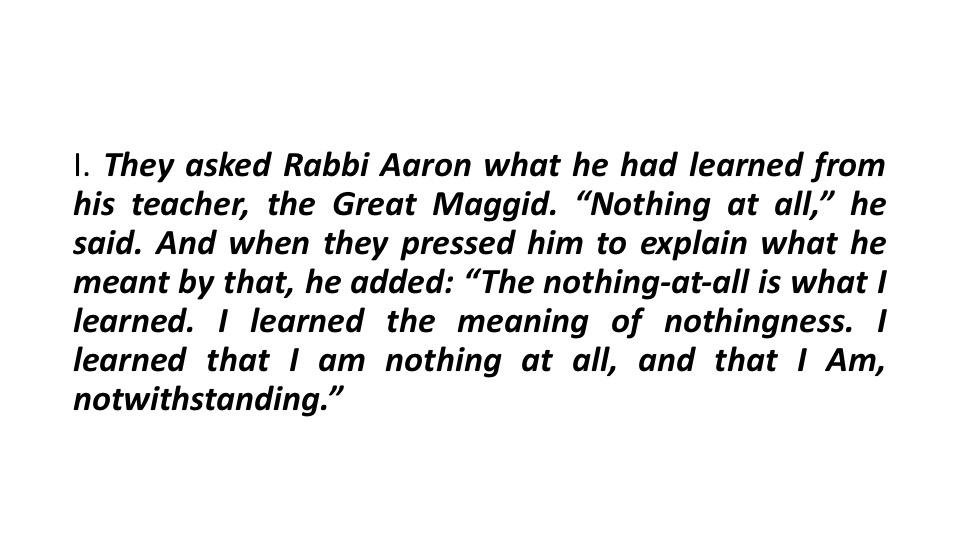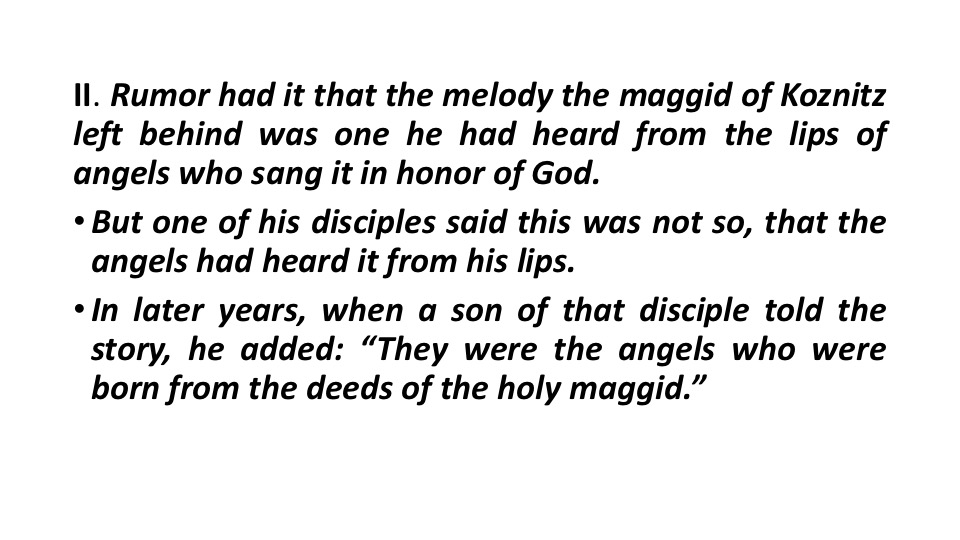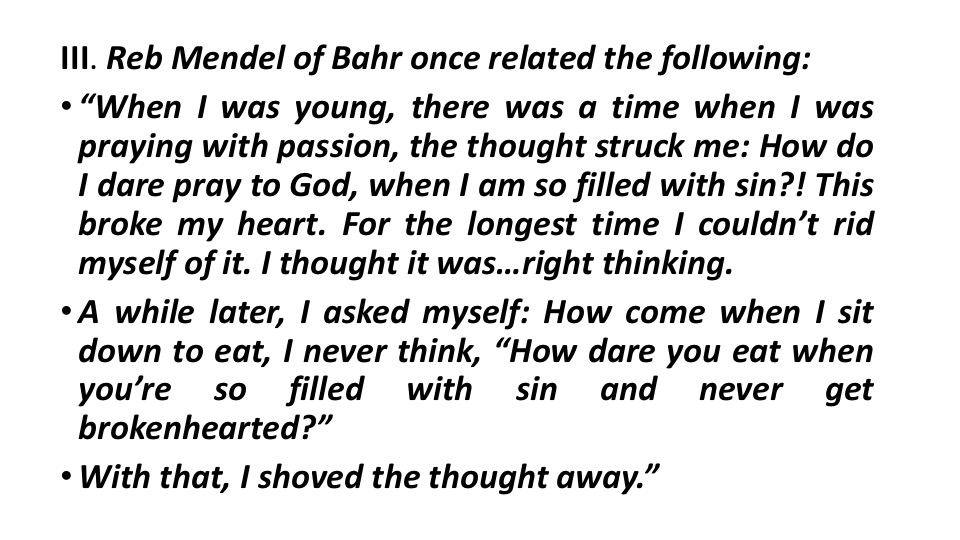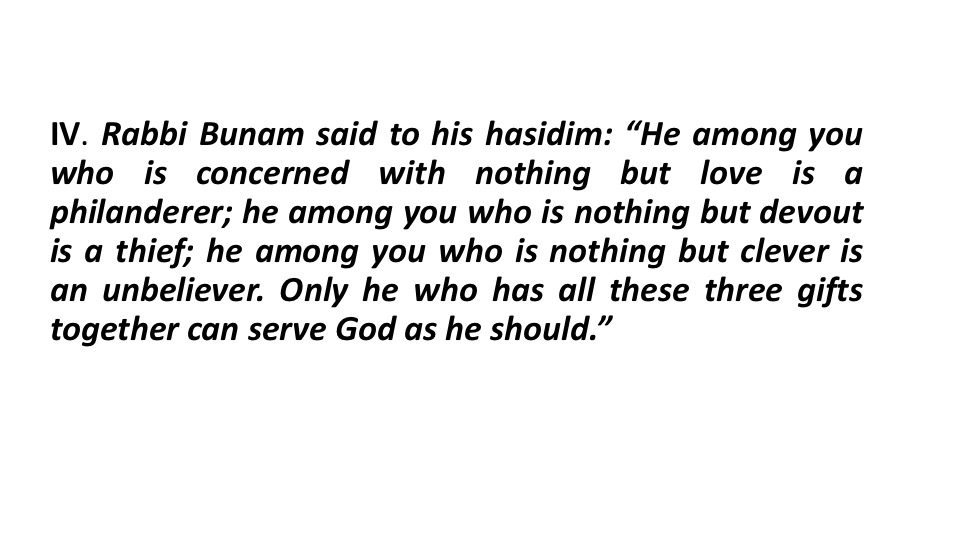Hasidic Tales on God’s Presence in Our Lives -Lesson II
Sandy Kress

The Hasidic Tales Lesson II

Hasidic Tales - 2
I. They asked Rabbi Aaron what he had learned from his teacher, the Great Maggid. “Nothing at all,” he said. And when they pressed him to explain what he meant by that, he added: “The nothing-at-all is what I learned. I learned the meaning of nothingness. I learned that I am nothing at all, and that I Am, notwithstanding.”
A. Surely, Aaron learned something from the Maggid, no? He clarifies rather that he learned “nothing-at-all,” that is, the meaning of nothingness. What is this nothingness?
B. Does Aaron mean to say that he is nothing at all? Or does the whole sentence suggest that he is perhaps “nothing-plus”? What’s the plus? Do the words, “I Am,” give you a clue?

Hasidic Tales - 2
II. Rumor had it that the melody the maggid of Koznitz left behind was one he had heard from the lips of angels who sang it in honor of God.
But one of his disciples said this was not so, that the angels had heard it from his lips.
In later years, when a son of that disciple told the story, he added: “They were the angels who were born from the deeds of the holy maggid.”
A. What do we make of the attribution of the source of a beautiful melody to angels, specifically as part of the notion that they sang it in honor of God?
B. Is it presumptuous to suggest that angels hear and then utilize songs we write and sing? Can you explain how that might be?
C. The son of the disciple goes further to suggest that angels are created out of the good deeds of the maggid? Is that too fictive to believe? Or can you explain it?
D. What does all of this discussion have to do with God’s imminence?

Hasidic Tales - 2
III. Reb Mendel of Bahr once related the following:
“When I was young, there was a time when I was praying with passion, the thought struck me: How do I dare pray to God, when I am so filled with sin?! This broke my heart. For the longest time I couldn’t rid myself of it. I thought it was…right thinking.
A while later, I asked myself: How come when I sit down to eat, I never think, “How dare you eat when you’re so filled with sin and never get brokenhearted?”
With that, I shoved the thought away.”
A. How and why might the rabbi feel distressed by his sin when he was praying?
B. When and why was the rabbi able to let go of the painful thought of sin while in God’s presence?

Hasidic Tales - 2
IV. Rabbi Bunam said to his hasidim: “He among you who is concerned with nothing but love is a philanderer; he among you who is nothing but devout is a thief; he among you who is nothing but clever is an unbeliever. Only he who has all these three gifts together can serve God as he should.”
A. How could it be that a person who is concerned only with love is a philanderer?
B. How could it be that a person who is nothing but devout is a thief?
C. How could it be that a person who is nothing but clever is an unbeliever?
D. How, then, could it be that a person who has all these three qualities can serve God as a person should?
